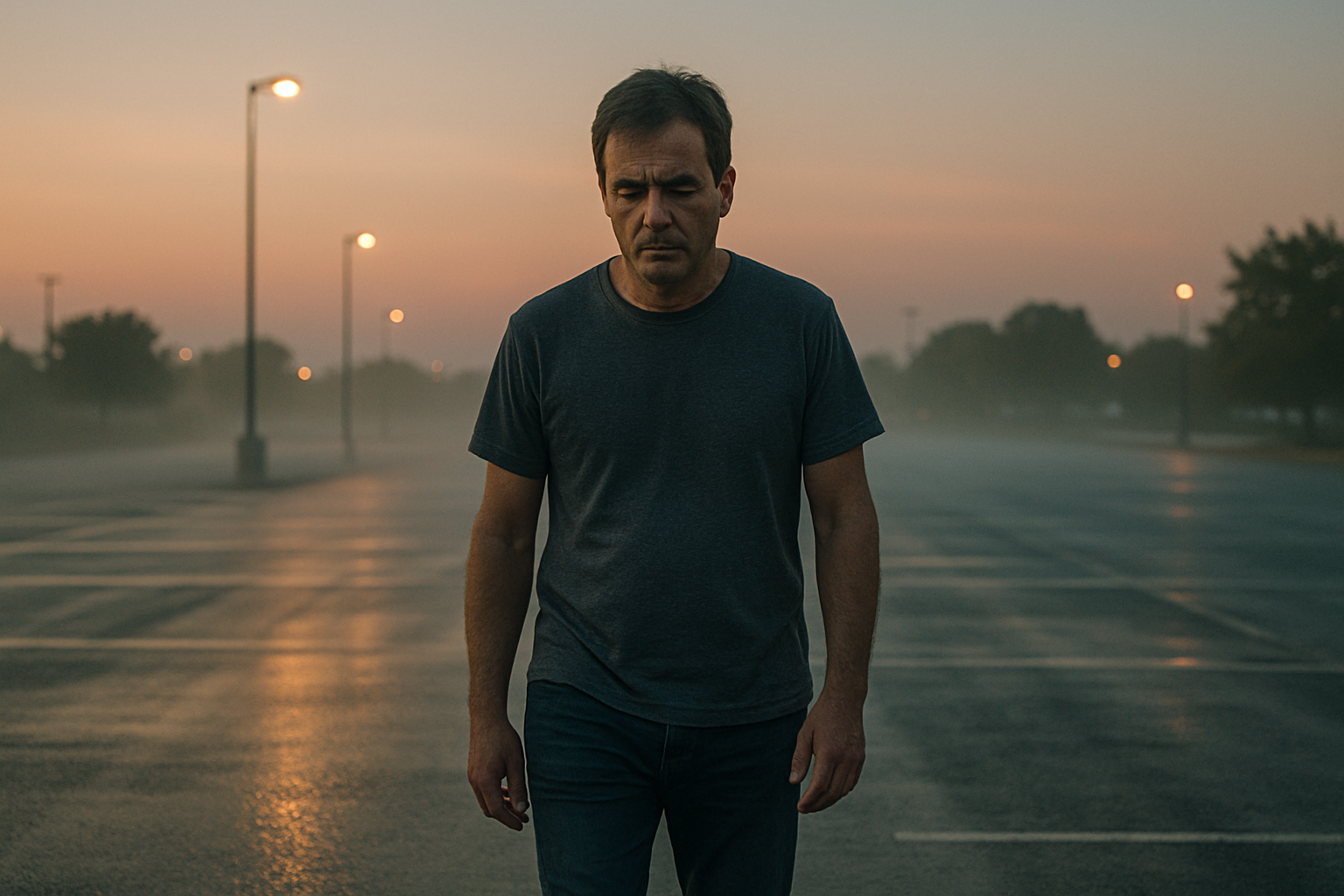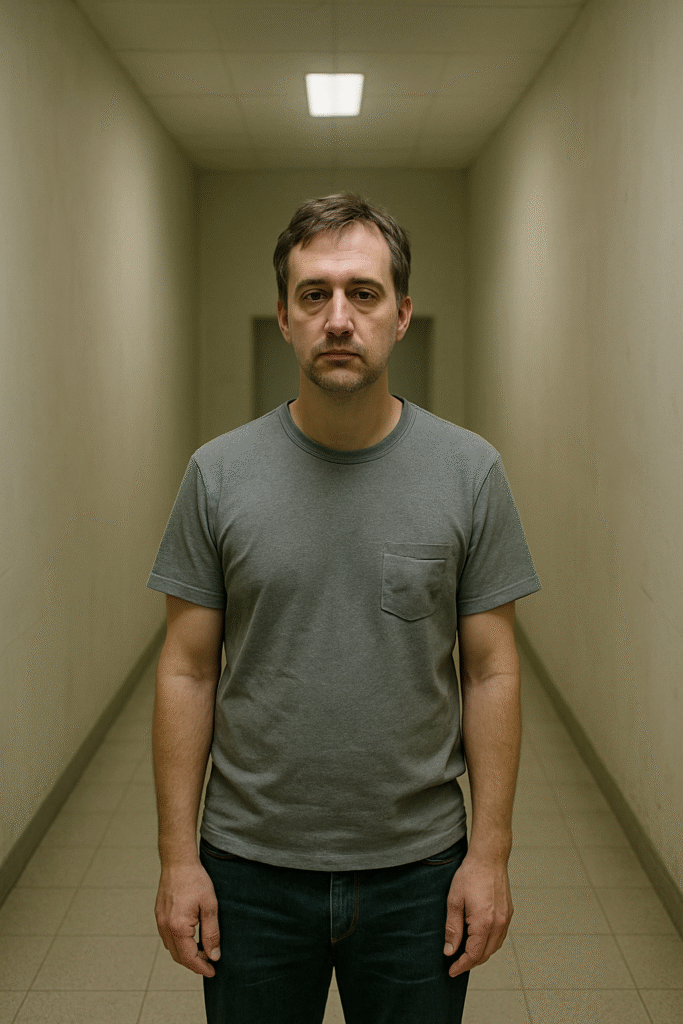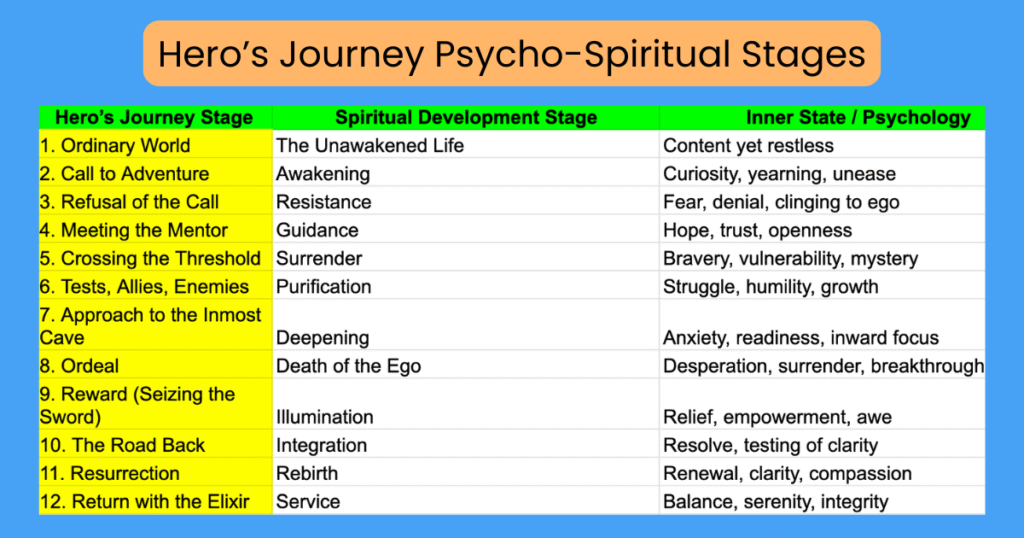Physical Address
304 North Cardinal St.
Dorchester Center, MA 02124
Physical Address
304 North Cardinal St.
Dorchester Center, MA 02124


The Mythic & Psychological Ground Before Growth
Why does life sometimes feel flat, drained, or meaningless?
Even when nothing is wrong on the outside?
Let’s say you have the job, the relationship, the routine, the home… And, on paper, things look fine.
Yet something essential feels absent.
It’s as if everything is slightly out of focus.
This ‘flatness’ isn’t failure. It’s a deep realisation that some part of us needs to grow, develop, blossom.
Welcome to The Ordinary World. It’s the psychological ground that has to come before transformation can begin.
You can think of it as a liminal state. And it’s nothing new, it’s a feeling recognised by ancient myth as well as modern science.
“I am restless. I am athirst for far-away things.” — Rabindranath Tagore
In Joseph Campbell’s mapping of the universal story structure, the Hero’s Journey, every adventure begins in what he called the Ordinary World.
This is base camp.
It’s where you live before the external call to change arrives.
Today, this mythic territory can show up in many ways. Boredom, burnout, fragmentation, addiction, conformity, midlife crisis, and mental health struggles.
From ancient times, these modes of being haven’t been seen as signs you’re lost. They’re signals that you’re standing at the edge of something larger.
Campbell describes the Ordinary World as the hero’s starting point.
Standing in a familiar landscape, we get a sense we must eventually leave it behind. It’s comfortable, predictable, and ultimately confining.
Psychologically, this could represent the ego’s attachment to safety. The old self’s resistance to growth.
We construct elaborate structures to keep change at bay. Often this leads to building lives that protect us from uncertainty whilst we’re slowly suffocating what’s most alive within us.
The flatness you feel is rooted in a far-off unease.
This tension is between who you’ve become and who you might be.
It’s the psyche’s way of saying the current story no longer fits.
Ancient myths understood this.
Modern happiness research now confirms it. These states of stuckness aren’t random misfortune. They’re patterns, predictable phases in the arc of human development.
Spiritually, this is the unawakened state. A restless wandering through the corridors of slumbering possibilities.
In the opening chapter of Wuthering Heights, Mr. Lockwood, the narrator, is in an “Ordinary World” shaped by an emotional wound.
In his unawakened state, his discomfort forces him to move to the wilds of Yorkshire. A clear attempt at avoidance.
Often we relocate to escape the difficulty of resolving inner conflict. It doesn’t work.
Lockwood arrives at the Yorkshire moors as a slick city gentleman. He’s used to the “stir of society”, and we discover that his search for solitude and peace comes after heartbreak. A mistake he made. One he can barely admit to himself.
Lockwood’s wound is that he failed in love.
He failed because he couldn’t overcome his own shyness and instead, “shrank icily into myself, like a snail,” and lost her completely.
What’s revealing is his confession, is that he feels, “perversely rather pleased than otherwise,” even as he insists she was, “a real goddess, in my eyes…”.
His excuse is that he “wouldn’t have run the risk of wounding her for the world.” Of course, he’s the one who was afraid of getting hurt. So he hurt himself, and her, to stop her hurting him.
Ah, the tangled webs we weave. And it’s this tension between desire and rejection, order and chaos, serenity and pandemonium, that Bronte explores right through this story.
Lockwood’s is right where he needs to be, to learn the lessons he needs to learn. Because he wears his shyness as an armour against vulnerability, against love itself. And it makes him appear cold and heartless, which he is not.
So, his Ordinary World is one where his emotional fallout has driven him to live a life where vulnerability becomes impossible.
In this state, he convinces himself his retreat signals misanthropy, dislike of others, rather than fear. For those of us who are shy or introverted, this is often the case.
His choice to rent Thrushcross Grange and visit Wuthering Heights comes directly from this wound.
He’s drawn to the wildness of nature and the isolation of the moors, “a perfect misanthropist’s heaven”. Not as punishment but as an escape.
Yet his desperate need for belonging motivates him to find someone to talk to immediately.
He latches onto Heathcliff, projecting his fantasy self onto his landlord, calling him a “capital fellow,” “a reserved man, with some grains of sense in his head.”
This is Lockwood’s moth-to-the-flame moment.
We’re often drawn to negative people who mirror and amplify our own need for growth.
Lockwood mistakes Heathcliff’s bitter, pathological reserve for superior independence.
In fact, as is obvious to the reader in the first couple of pages, Heathcliff is dangerous. Dangerous because he’s surrendered to instability. He’s lost the fight for inner peace, and is what we would call nowadays ‘addicted to drama’ and unchecked emotions.
In effect, Heathcliff acts as a dark mirror reflecting the unacknowledged passion and pain of Lockwood’s own suppressed wound.
The truth is, Lockwood doesn’t want isolation.
In the restlessness of his Ordinary World, he’s searching for someone who validates his defended self.
Burnout lands when external success masks inner exhaustion.
You’re performing, producing, achieving.
Collapsing.
It’s a sign your ego has overextended. Pouring energy outwards without replenishing.
If you feel as though you’re always running out of time – you’re probably close to burning out.
In the end, it’s often the body that finally forces you to listen through sheer depletion.
Recent surveys & findings:
In the Hero’s Journey, burnout becomes a treadmill moment. An unsustainable pace that eventually becomes the call to inner change.
And it’s true to say that when we pursue happiness too hard, we paradoxically decrease our satisfaction.
Burnout is the price of trying to sprint a marathon. It’s the result of confusing busyness with purpose.
Here’s what nobody wants to hear, burnout isn’t caused by working too hard. It’s caused by working on things that don’t matter.
Research consistently shows that meaning, not pleasure, predicts well-being and longevity.
A 2024 study found that happiness-promoting habits like gratitude, and exercise often don’t work because they provide only temporary boosts unless you continuously maintain them.
In other words, happiness requires ongoing effort.
But here’s the deeper problem: “What if you’re exhausting yourself maintaining the wrong habits for the wrong reasons?”
Burnout is your soul going on strike. The collapse isn’t the problem. The collapse is the message.
Addiction wears many faces.
Alcohol, substances, screens, shopping, work, relationships.
It’s anything that consumes us.
At its core, addiction is false safety. It’s a cage disguised as a shelter.
We turn to familiar escapes to avoid pain. It’s a way to numb the ache of disconnection from ourselves, from the sacred, and from others.
Any form of addiction that isolates us from precisely what would heal us, somehow offers the illusion of comfort.
When the Ordinary World intrudes, something inside you knows you’ve got a problem.
Before it’s too late.
There’s nothing wrong with a normal life. In fact, it’s often the simplest path to contentment.
But for some, it’s just avoidance.
On the surface everything looks right. The stable job, the respectable life, the safe choices. Yet underneath, something is off.
“Life is never made unbearable by circumstances, but only by lack of meaning and purpose.” — Viktor Frankl
A modern expression of this appears in what’s been called “silent quitting”—doing the minimum required while your real self checks out.
You’re present at work, but not engaged.
Compliant but not committed.
It’s not laziness. It’s survival. A boring job can be like a parasite. It sucks the meaning from your days. You’re still showing up to the village, but your soul is prepping for the quest.
This is the safe harbor that becomes a trap. Positive psychology’s PERMA model shows that flourishing requires far more than accomplishment or social approval.
You need to be inspired, or at least interested in what you do. As they often say, you need to find your ‘why’.
We need purposeful work and satisfying relationships to thrive.
Essentially, the conformist path can end up being cosplay.
You follow the same success script as everyone else.
This fundamentally misunderstands how humans actually flourish. There is no universal formula.
You have to figure out what works for you, which requires knowing who you actually are. Which is the work conformity helps you avoid.
You achieved the goals. Built the career. Maybe raised the family.
And now, looking around at what you’ve constructed, you find yourself asking, “Is this it?”
Or perhaps it all went wrong.
Maybe you didn’t reach any goals.
Maybe your life slid out of control early on, and you never made it back on track.
Then one day you wake up, and decades have passed.
Whichever it is, perceived success or failure, the life structure you’ve built remains intact on the outside. But on the inside it feels hollow. As if you’re living someone else’s life.
On a psychological level, your midlife crisis is the collapse of the old self.
And you’re feeling an irritating need for new growth. For restoration. Fo re-storification.
Global research reveals a U-shaped curve of happiness across the lifespan. It dips significantly in midlife before rising again in later years. Which means hitting that wall in midlife isn’t an individual failure.
Instead, it’s a predictable developmental passage.
The journey through this crisis often requires forgiveness, both of ourselves and others, which is a skill that has shown to improve mental health and resilience.
Here, I’m not talking about serious clinical anxiety and depression with a diagnosis.
There’s the generalised low mood and troubled mind that plagues many people.
There’s a fog of unrealised problems, paralysis. A sense that nothing matters or that everything threatens.
Often, we feel this way as a natural response to an external event. Loss of a loved one, moving house, redundancy.
Or perhaps a series of small, relentless challenges has worn a hole in our trust of the world.
At this stage, the awakening to the unease of the Ordinary World is to turn and face things just as they are. Accepting the struggle may take some time helps.
It can lead to all kinds of questions of the what? where? how? why? When? variety.
“Be patient toward all that is unsolved in your heart and try to love the questions themselves.”
— Rainer Maria Rilke
And resistance is useless. We know now that trying too hard to be happy can reduce self-control and emotional health.
The way through isn’t forced positivity.
By allowing the darkness its place while cultivating small, sustainable practices might be the way forward. Noticing tiny moments of joy in each day can measurably boost mood.
A sense of flatness is the ground out of which new growth emerges.
Modern research reveals a happiness paradox: chasing happiness directly often undermines it. The more we monitor and optimise, the less satisfied we become.
Meanwhile, the actual sources of well-being lie elsewhere. In daily acts of gratitude, acceptance, and cultivating relationships.
In every story, the Ordinary World is unstable by design.
It must crack to allow transformation.
“There is a crack in everything. That’s how the light gets in.” — Leonard Cohen
The Hero’s Journey doesn’t begin with bold action—it begins with discomfort, with flatness, with the growing sense that the current life no longer fits.
The adventure doesn’t start when you leap—it starts the moment everything begins to feel even slightly wrong.
I like to think of the Hero’s Journey as a map of psycho-spiritual. We cycle through them many times in a lifetime, sometimes returning again and again to resolve deeply ingrained emotional and cognitive patterns.

Awareness is the key.
Once you notice you’re feeling dissatisfied, you can map it to the beginning of something new where it belongs.
There’s a relief in this. It means you’re not broken.
You’re between stories.
Standing in the liminal space where one version of yourself is ending and another hasn’t yet emerged.
Becoming aware that a sense of flatness is just another part of a new story rather than evidence of failure, something shifts.
Research offers practical footholds for this passage.
Deepen your social ties—not superficial networking but genuine connection. Focus on meaning rather than hedonic pleasure; ask not “What feels good?” but “What matters?”
Practice forgiveness and gratitude, which create psychological spaciousness for new growth. Create micro-moments of joy—small rituals of presence that anchor you when everything else feels unmoored.
The flatness you feel might be uncomfortable, but it’s also information. It’s the psyche’s way of saying the old map no longer matches the territory. The exhaustion, the numbness, the sense that something essential is missing—these aren’t signs you’ve failed at life. They’re signs you’re ready for a new adventure.
This recognition opens questions that will guide your path forward.
“We must be willing to let go of the life we have planned, so as to accept the life that is waiting for us.” — Joseph Campbell
What are you willing to let go of?
What really matters right now?
Not what society says should matter, but what actually makes you feel alive.
The answer isn’t found in some grand revelation. We understand what life means to us through living well. Through having values we live by. Then we can become the person we were always meant to be. How do you find the values that give your life meaning? By tracking the moments when you feel genuinely alive versus drained, then using that pattern as your decision filter.
Is happiness even the goal? Probably not. In fact, it’s more like a by-product of living well. When you pursue purpose, joy tends to follow rather than the reverse.
And in a world of constant change, why does lifelong learning matter more than ever? Because knowledge expires faster than it ever has. The learners will outrun the experts who stop growing.
These questions aren’t meant to be answered immediately. They’re invitations to a different kind of inquiry, one that begins with acknowledging where you actually are rather than where you think you should be.
When everything feels flat, you’re in a good place. Better than you might think.
A story starts in the Ordinary World and then.. the call.
When you’ve stirred from the flat life, you’re ready.
Something needs to change.
It could be more of an inner transformation, an outer change. Or both. But it begins with on the inside.
Listen.
The call to adventure is walking up to your door.
In the next article in this series on How To Re-Story Your Life, we explore how to recognise the invitation to a new adventure.
World Economic Forum. Why meaning, not pleasure, predicts well-being and longevity. (2024).
UC Berkeley. Stop worrying about being happy: new psychology research suggests doing so makes people less satisfied. (2024).
World Happiness Report 2024. Social support as strongest predictor of well-being.
Washington Post. Even chores feel happier with friends, new study finds. (2025).
Seligman, M. (2011). Flourish: A Visionary New Understanding of Happiness and Well-being. Free Press.
Schkade, D., & Kahneman, D. (1998). Does living in California make people happy? A focusing illusion in judgments of life satisfaction. Psychological Science, 9(5).
World Happiness Report 2024. Happiness and age: the U-shaped curve.
Greater Good Science Center. Top 10 insights from the science of a meaningful life in 2024.
Philadelphia College of Osteopathic Medicine. Applied Positive Psychology and the 2024 World Happiness Report. (2024).
ScienceDaily. Trying to be happy may harm self-control and emotional health. (2025).
San Francisco Chronicle. The surprising power of micro-joy to boost health and well-being. (2024).